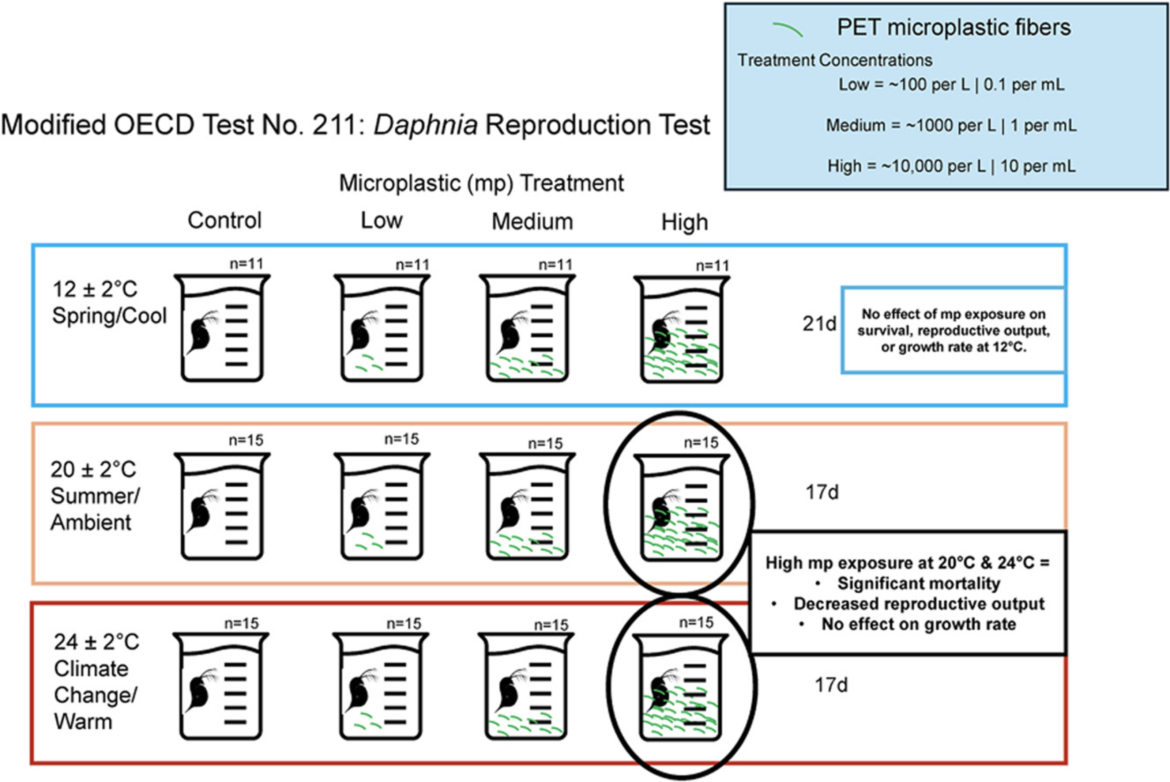
Abstract
The emergence of microplastics as a global contaminant of concern has coincided with climate change induced temperature warming in aquatic ecosystems. Warmer temperatures have been previously demonstrated to increase the toxicity of certain contaminants, but it is currently unclear if microplastics are similarly affected by temperature. As aquatic organisms simultaneously face microplastic pollution and both increasing and variable temperatures, understanding how temperature affects microplastics toxicity is pertinent in this era of human-induced global change. In this study, we investigate the effects of environmentally relevant microplastic exposure to Daphnia pulex survival, reproduction, and growth at three different temperatures. To simulate an environmentally relevant exposure scenario, we created microplastics with physicochemical characteristics often detected in nature, and exposed organisms to concentrations close to values reported in inland waters and 1-2 orders of magnitude higher. The three temperatures tested in this experiment included 12 °C, 20 °C, and 24 °C, to simulate cool/springtime, current, and warming scenarios. We found the highest concentration of microplastics significantly impacted survival and total offspring compared to the control at 20 °C and 24 °C, but not at 12 °C. The adverse effect of high microplastic concentrations on total offspring at warmer temperatures was driven by the high mortality of the juveniles. We observed no effect of microplastics on time to first reproduction or average growth rate at any temperature. Warmer temperatures exacerbated microplastic toxicity, although only for concentrations of microplastics not currently observed in nature, but these concentrations are possible in pollution hotspots, through pulses pollution events or future worsening environmental contamination. The results of our study illustrate the continued need to further investigate climate change related co-stressors such as warming temperatures in microplastic and pollution ecology, through environmentally realistic microplastic exposure scenarios.